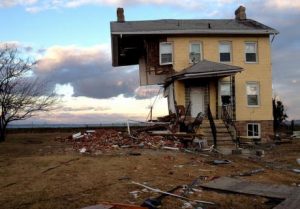
As a society, we are always striving toward growth, progress, innovation, and change. But sometimes it’s important to look back at where we were and what we came from.
California has a rich architectural history, and in an effort to preserve the state’s heritage, California has adopted several initiatives to protect historically relevant buildings, homes, and public spaces. One such program is the California Mills Act, aimed encouraging the preservation and restoration of private historical residences.
What Is The Mills Act?
The Mills Act is an important economic incentive program in California for the restoration and preservation of qualified historic buildings by private property owners. The Mills Act was established in 1972 as a state-wide initiative, implemented by local governments. The Mills Act legislation grants participating local governments (cities and counties) the authority to enter into contracts with owners of “qualified historic properties.” In exchange for property tax relief, private property owners actively participate in the restoration and maintenance of their historic properties.
What Is A Mills Act Contract?
A Mills Act Contract is between a private property owner and the local government (city or county) in which the historic property resides. Mills Act contracts are for 10 years initially, with yearly automatic extensions.
Owners of historic buildings or residences may qualify for property tax relief if they pledge to rehabilitate and maintain the historical and architectural character of their property for at least a 10-year period.
What Is A Qualified Historic Property?
Qualified historic properties are properties that are listed on any federal, state, or county registers, including the National Register of Historic Places, California Register of Historical Resources, California Historical Landmarks, State Points of Historical Interest, and locally designated landmarks. Owner-occupied family residences and income-producing commercial properties may qualify for the Mills Act program, subject to local regulations.
What Are The Benefits To Homeowners?
If a private homeowner’s property has been deemed historical, and a Mills contract has been entered into with the local government, the homeowner may receive a substantial property tax savings each year (about 40%-60%). The homeowner must pledge to rehabilitate and maintain the historical and architectural character of the property for the life of the contract.
What Are The Terms Of The Contract?
Property owners agree to restore, maintain, and protect the property in accordance with specific historic preservation standards and conditions identified in the contract. Periodic inspections by City and County officials ensure proper maintenance of the property. The City may impose penalties for breach of contract or failure to protect the historic property.
What If I’m Buying A Mills Act Property?
Mills Act contract are transferrable. Subsequent owners are bound by the contract and have the same rights and obligations as the original owner who initiated the contract. Terms are negotiated with local governments independently, so it is important to contact your local government to determine the rights and obligations a Mills Act contract creates.
Does My Property Qualify For The Mills Act?
To find out if your property qualifies for the Mills Act, use the Mills Act Contacts list to see which California local governments are currently participating in the Mills Act Program, the local criteria, and the application process.
Los Angeles Mills Act Information
For Los Angeles residents, a qualified historic property is a property listed as a locally-designated Historic-Cultural Monument or Contributing Property to an approved Historic Preservation Overlay Zone. Additionally, single-family residences (with a property tax value assessment of not more than $1,500,000) and income producing multi-family/commercial/industrial properties (with a property tax value assessment of not more than $3,000,000) are eligible to apply. Property values in excess of these limits may apply for an exemption if they meet certain criteria.
The City will be accepting applications for properties that need significant rehabilitation or restoration work. The work needed to rehabilitate or restore the property shall be pending or not completed. Applications will be prioritized based on how the Mills Act will be used to assist the viability of the project.
Frequently asked questions about the Los Angeles Mills Act





15 Responses
This was a really big thing in San Francisco, especially when the tech boom was just getting started and a lot of historic properties were in danger of getting demolished or severely renovated to make way for high-end housing. The Mills Act does a great job of protecting the “feel” or the spirit of a neighborhood, and makes it a better place to live for everyone. The bonus for homeowners is that having a home near a historic building makes your home’s value go up, which is great when you want to sell (and this is just a personal observation- I could be wrong).
I feel like the Mills act definatably made things better. It makes neighborhoods a lot more livable
IT really is good to have an organism in charge of taking care of the oldest structures in town, we really need that in other countries, indeed.
The Mills act definitely made things better.Things were definitely more complicated initially.
I really support the Mills Act. It’s important to preserve historical buildings. They add a lot of character and beauty to cities. It gives the homeowner a good incentive to keep the building up too. It’s really a shame how some beautiful historical buildings have been destroyed in North America.
This seems like they are finally aware of gentrification! This is great news! I hope the rest of the country can adopt an Act like this. We definitely need the help to protect us from developers!
For the sake of heritage and culture, the Mills Act has to be upheld. Those who refuse to follow its provisions are not even taking taking history into account. Historic buildings are necessary not just for tourism purposes, but they actually give the state – as much as the whole country – a sense of identity and belonging.
What happens if the owner of a property wants to demolish the building? I suppose they wouldn’t get approval from the city. Also, if you buy a property that’s two years into its Mills Act contract, does the ten-year period reset or do you simply uphold it for eight years instead?
This is really interesting. It made me think of the differences between things out west and how things might have happened out east. I used to live in New York so I am kind of familiar with the Boston areas and places up there, and they certainly have had their struggles preserving the historical sites. Things happened much earlier out there though, and it seems the west is now experiencing this too. It is funny to think about, but very interesting too.
that is a wonderful act. when i was in middle tennessee, most of the wonderful older houses ended up vandalized, in the projects, or just left to rot. it really hurts my heart, but i am glad places like CA are actively trying to prevent things like that.
Wish we had such Acts here aswell!
It’s definitely important to keep properties with great historical value preserved. It saddens me to see that a lot of people do not realise the true beauty of such properties.. you should not be able to just demolish them at your own desire. Old buildings remind and show people the culture in that area.
I see this as simply a transfer of tax monies from the general fund to the beautification of the neighborhood with the owner doing all the work. Don’t get me wrong, I like a beautifully maintained neighborhood but the owner gets no favors. They either pay the city or they pay the contractor.
It’s great that California is trying to stray away from the “out with the old, in with the new” mindset. I would love to purchase a renewed home that has classic architecture.
This California Mills Act is very important because it preserves and restore natural and historical houses for our new generation to see. Its purpose is to preserve historical houses thar is so wonderful. This houses holds history in through the years, maybe they can use this house as a museum of some sort.